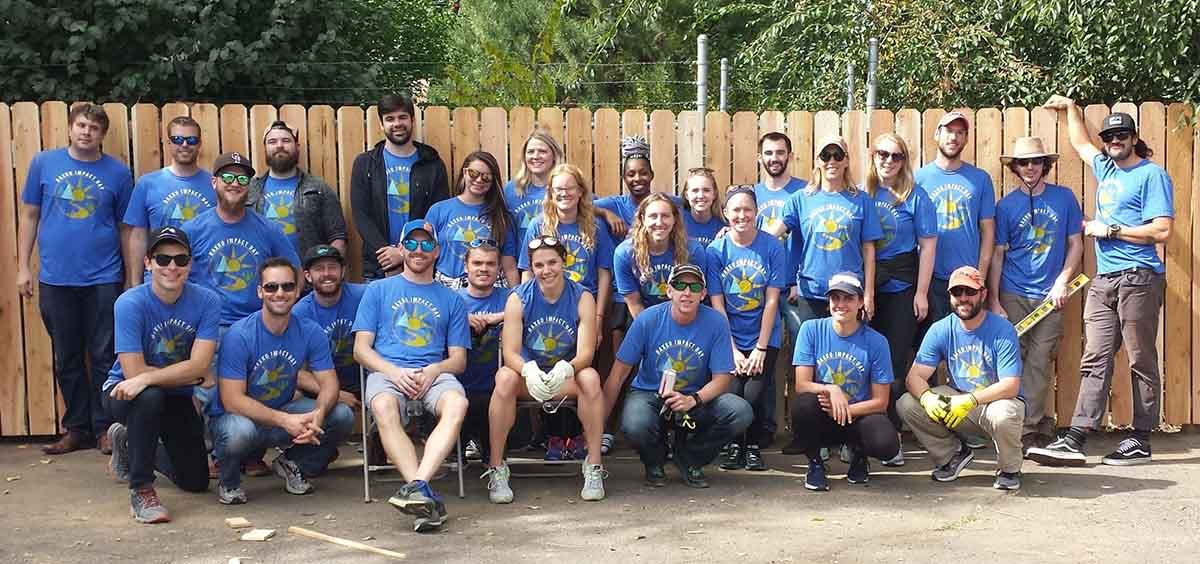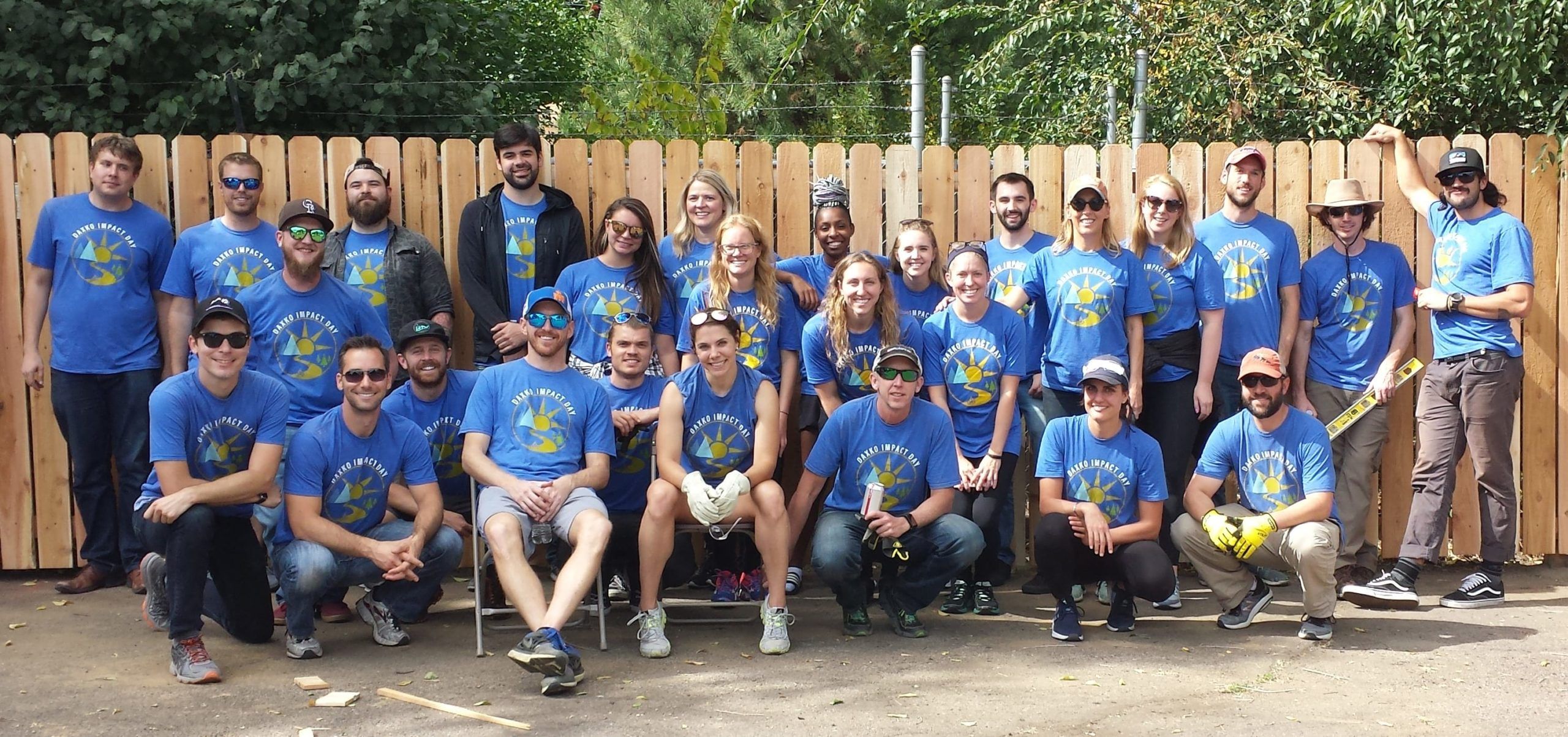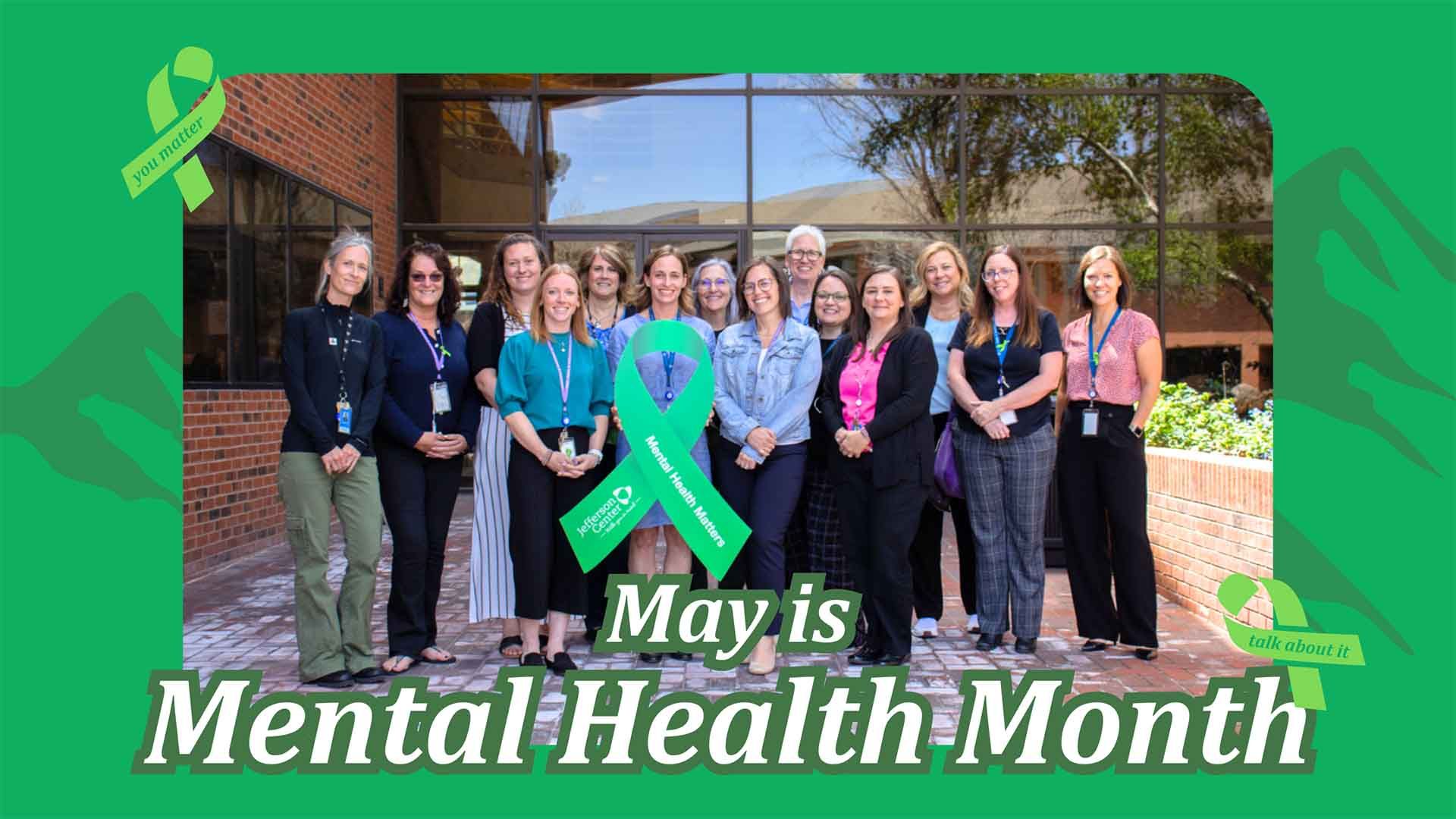For Our Community
Each year, Jefferson Center for Mental Health makes a difference in the lives of thousands of community members struggling with mental health disorders.

Here Are Some of the Ways We Are Supporting Our Community Each Day
Suicide Prevention
For over 25 years, Jefferson Center has been the lead agency of the Suicide Prevention Coalition, a community from Jefferson, Clear Creek, and Gilpin Counties, addressing suicide prevention issues. Valuable resources including warning signs, what to do, resources and suggestions for survivors are provided through materials available to organizations, at events throughout the community.
Mental Health First Aid
Mental Health First Aid teaches the public identify, understand and respond to signs of mental illnesses and substance use disorders. Jefferson Center for Mental Health is proud to offer these interactive 8-hour course free of charge to our community members. Health First Aid does not teach people to be therapists, rather it teaches a 5-step action plan encompassing the skills, resources and knowledge to help an individual in crisis connect with appropriate professional, peer, social and self-help care.

Keeping or Restoring Your Medicaid Benefits
Have you lost your Medicaid benefits and aren’t sure why? Are you confused about why you lost your Medicaid benefits? You may still be eligible to receive Medicaid. Some cases may even be eligible to have past services covered. These resources can help: Local Resources – Jefferson County: Jefferson County Dept. of Human Services 900 Jefferson […]
Jefferson Center for Mental Health Announces Sarah Alquist as New CEO
The Board of Directors of Jefferson Center is pleased to announce the appointment of Sarah Alquist as our next President and CEO. Sarah will be joining our team on May 12th, bringing a deep passion for behavioral health, a heart for service, and a wealth of experience across non-profits, state associations, government agencies, and health […]
Private Corporate Classes
Interested in making mental health a priority at your place of work?
At Jefferson Center we value the inclusion of mental health awareness in the workplace, and have a variety of classes, training sessions and public speakers to aid to your organizations efforts to build the conversation around mental health at your organization.

The Art of Hope Annual Calendar
The 2025 Art of Hope Calendar Is Here! Through the Art of Hope, Jefferson Center’s annual calendar, we are proud to support and showcase artwork produced by Jefferson Center clients. For many, art is a form of creative expression. For others, art fosters strength and resiliency in the face of life’s toughest challenges. In our […]
Policy Action Network (Pan) Sign-up
Policy Action Network (PAN) – Advocacy
Be An Advocate! Becoming an advocate for mental health is a great way to get involved in your community! Jefferson Center has a Policy Action Network (PAN) which establishes and maintains positive relationships with elected officials and other decision-makers to promote adequate resources and improve the lives of community members. We provide advocates with up-to-date […]

Volunteer
Thank you for your interest in volunteering at Jefferson Center! Our volunteers play an important role in achieving our vision of a community where mental health matters and care is accessible to all. Volunteers are needed throughout the year for help with our fundraising and community events.
Bridges of Understanding: Faith-Based Connection
We know that often people will seek help from their faith-based connections for mental health and substance use counseling. Because of this common mission, Jefferson Center partnered with faith-based organizations to establish Bridges of Understanding with the purpose of: Supporting faith-based organizations in our local community with resources and education on mental health and substance […]

Speakers Bureau
Speakers Bureau at Jefferson Center shares our resources and knowledge free of charge with businesses, civic clubs, church groups, schools, and other organizations in our area.

Get Involved
1. Stay in The Loop Sign up today and be the first to get notified of new updates. 2. Donate Give a tax-deductible gift to support mental health and substance use services at Jefferson Center. 3. Get Certified in Mental Health First Aid Learn to recognize a range of mental health and substance use disorders, […]
